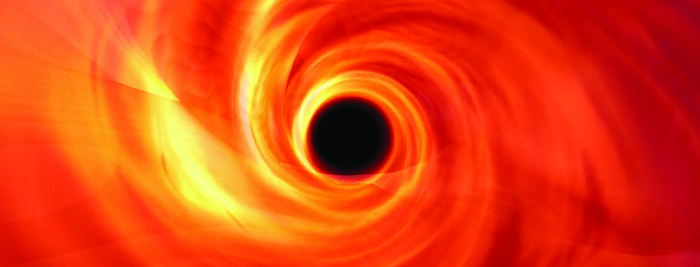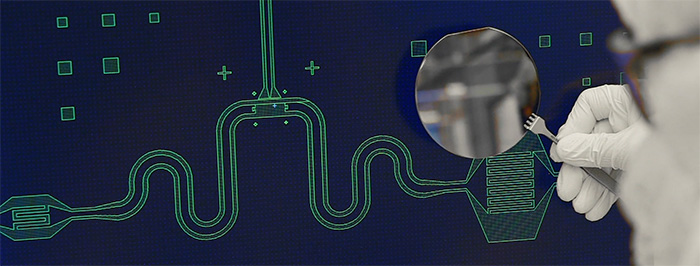
(All photos courtesy UChicago News)
The past, present, and future of UChicago discoveries.
This past autumn, the University debuted a multimedia series delving into the histories behind UChicago ideas and discoveries that changed the world. The first three installments of The Day Tomorrow Began—on black holes, ancient civilizations, and quantum technology—highlight intellectual throughlines connecting yesterday, today, and tomorrow.

Black holes
1930: Just 19 years old, future UChicago professor and physics Nobelist Subrahmanyan Chandrasekhar theorizes the existence of black holes while traveling by steamer from India to England.
1935:Chandrasekhar presents his idea at a Royal Astronomical Society meeting and is publicly ridiculed by a Cambridge mentor.
2019: After six decades of mounting evidence that black holes exist, the Event Horizon Telescope collaboration releases the first image of a black hole.
Today: Astrophysicists Daniel Holz, SM’94, PhD’98, and Andrea Ghez, LAB’83, are building on Chandrasekhar’s discovery to answer fundamental questions about the universe: What is the universe really made of? What is the precise age of the universe? “These are all things we think we’ll be able to answer,” Holz says. (Read a profile of Chandrasekhar, “It Was Written in the Stars.”

Ancient civilizations
1894: On his honeymoon, Oriental Institute (OI) founder James Henry Breasted first visits Egypt.
1905: UChicago president William Rainey Harper appoints Breasted the first US professor of Egyptology.
1914: In Ancient Times, his textbook for high school students, Breasted popularizes the term Fertile Crescent—and the idea that civilization began in the Middle East, not in Europe.
Today: Scholars including the OI’s Gil Stein and Augusta McMahon, AM’86, PhD’93, are filling out our knowledge of ancient civilizations and our inheritance from them. For instance, we are now realizing, McMahon says, “that a lot of Mesopotamian cities didn’t just grow from internal people getting together and doing their thing, but also through migration, much like now.”
Quantum technology
1930s–40s: Arthur Holly Compton, Enrico Fermi, and other physicists make critical discoveries in quantum mechanics.
2011: As quantum science evolves, UChicago establishes the Institute for Molecular Engineering (today the Pritzker School of Molecular Engineering or PME) with a unique problem-driven approach and a focus on science at the smallest scales, including quantum technology.
Today: PME, Argonne National Laboratory, and the Chicago Quantum Exchange are helping usher in a quantum tomorrow, with implications for the future of encryption, artificial intelligence, drug treatments, and far more. “The emergence of quantum technology,” says PME professor David Awschalom, “is a little like moving from a digital world in black and white to a quantum world in color,” and the world ahead is emerging in tantalizing glimpses.
Learn more at the UChicago News website.

